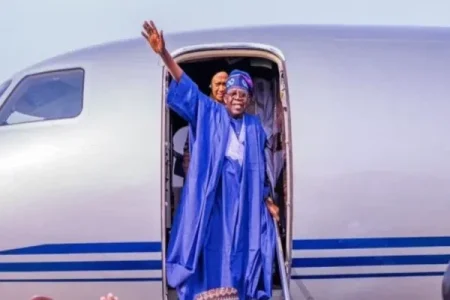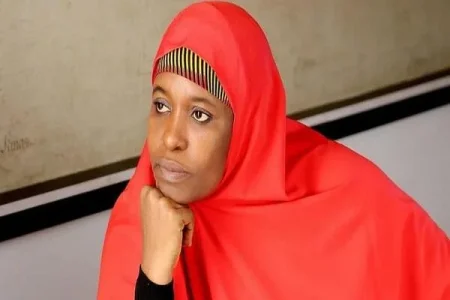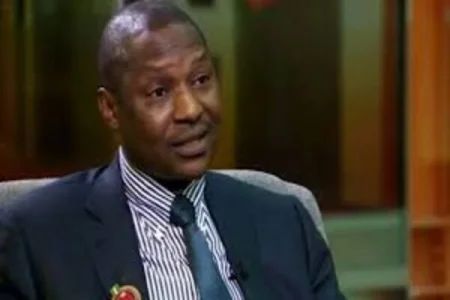
President Bola Tinubu has concluded his participation in the 44th Ordinary Session of the Executive Council of the African Union (AU) in Addis Ababa, Ethiopia, returning to Abuja amidst speculation and anticipation regarding the implications of his engagements on the continental stage.
Departing from Addis Ababa in the morning on Monday, President Tinubu's arrival in Abuja at approximately 3:40 pm marks the culmination of a three-day diplomatic mission to Ethiopia. During his stay, the Nigerian leader played an active role in various facets of the summit, including high-level meetings, bilateral discussions, and engagements on the sidelines of the AU summit.
At the heart of the AU summit discussions were crucial issues ranging from institutional reforms to peace and security, climate change, and the role of Africa in the G20. President Tinubu's presence underscored Nigeria's commitment to regional cooperation and its proactive stance on continental affairs.
Of particular significance was President Tinubu's involvement in deliberations centered on the theme of this year's summit: "Educate an African fit for the 21st Century: Building Resilient Education Systems for Increased Access to Inclusive, lifelong, quality, and Relevant Learning in Africa." His engagement in these discussions reflects Nigeria's dedication to advancing education and human capital development across the continent.
Accompanied by a delegation comprising ministers and top government officials, President Tinubu's presence at the AU summit reaffirmed Nigeria's status as a key player in African affairs. His active participation in discussions on critical issues facing the continent signals Nigeria's readiness to collaborate with other African nations in addressing shared challenges and advancing common goals.
As President Tinubu returns to Abuja, speculation abounds regarding the potential implications of his engagements in Ethiopia on Nigerian politics. While some view his participation in the AU summit as a strategic move to bolster Nigeria's regional influence and diplomatic ties, others interpret it as a precursor to his political ambitions on the domestic front.
Amidst these conjectures, one thing remains clear: President Tinubu's role on the African stage continues to shape both regional and domestic narratives, underscoring the interconnectedness of Nigeria's political landscape with broader continental dynamics.




